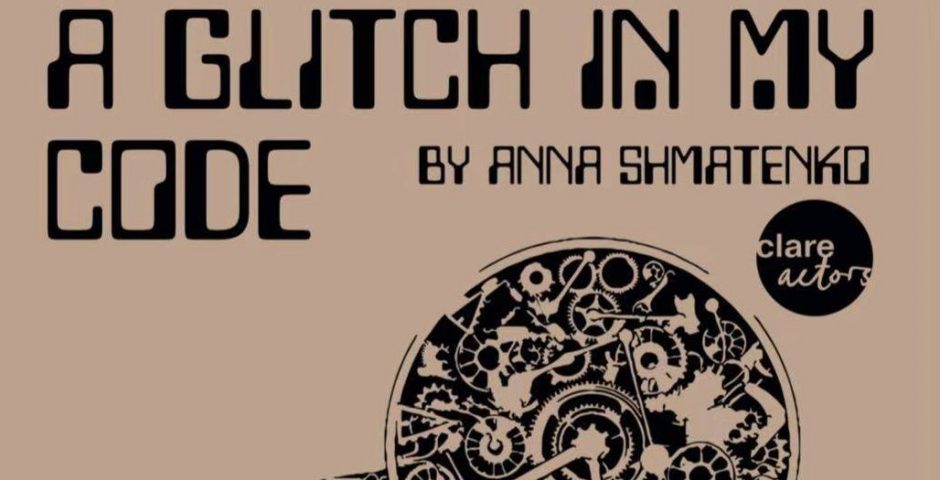
A Glitch in My Code – Review
An intriguing blend of science-fiction and philosophical debate that falls just short of its full potential
Theatre is very often thought to be about human emotion and expressing that emotion through connection with the audience. A play then, about an android who is devoid of feeling seems a little counter-intuitive. Putting a human on stage and trying to convince an audience that they are a robot is no mean feat but, to her credit, writer/director Anna Shmatenko pulls it off.
A Glitch in My Code explores the daunting near future in which artificial intelligence is capable of replicating humans, not just physically, but emotionally. We first meet Ian (David Barton), a 20-something with a messy apartment who is all limbs and nervous energy as he greets the latest technological advancement in housekeeping, ‘Felix’ (Lara Cosmetatos). Ian then conspires to fool his friend, Alice (Sophie Challonder), into believing his android is actually human.

Brimming with discussions of free will and whether emotion is necessary or even advisable for humanity, the play’s debates are engaging, with fierce personal involvement from Challonder’s passionate Alice and draw neatly on the dramatic irony of Felix’s “humanity”. The direction also shines in terms of physicality, Ian’s fidgeting and Alice’s disregard for personal space clashing with the android’s initial dearth of personality and self-expression. It is clear that the cast and directors have been committed to making Felix as convincing a fake humanoid as possible.
Special mention must certainly go to Cosmetatos, who is a delightful blend of endearing and disturbing. Initially programmed to echo Ian’s all-too-human gestures (including some ill-advised finger guns), Felix gradually develops a sense of his own emotions, succumbing to both outbursts of anger and the joys of ‘Come On Eileen’. This progression is expressed subtly in both script and acting and is central to the play. Even so, it still feels that there may be further to go.

Barton's portrayal of Ian is earnestly naïve and hypocritical, rather accurately setting the bar for humanity in the piece. He is both self-assured in his apathetic attitude to Felix and plagued with self-doubt as he questions the morality of his actions towards Alice. This wonderful irony, however, is sadly lost as his character largely takes a backseat until the end of the play. His relationship with Alice is briefly discussed but never developed, despite being relatively crucial to Felix’s interaction with her. Alice herself lacks background outside of being rather obsessively set on helping Felix. It is unfortunate that these arcs do not quite get the time or attention they deserve.
Despite dealing with the core elements of what it is to be human, the play doesn’t quite manage to take its own advice. The characters it posits are just as interesting as the philosophical questions, but while the latter are extensively explored, the former go underdeveloped. The action moves apace, often jumping from pivotal moment to pivotal moment with only lengthy scene changes to aid its progress and the end of the play popped up almost too abruptly, leaving me with a sense of dissatisfaction that it hadn’t gone on longer.
There is certainly something quite captivating here but, perhaps due to time constraints, or a preoccupation with the philosophical rather than the personal, it doesn’t quite find its full potential. There is plenty more that could come out of this compelling, near-future world Shmatenko has created.
3.5 stars
Images with permission from Shilin Chen.









































